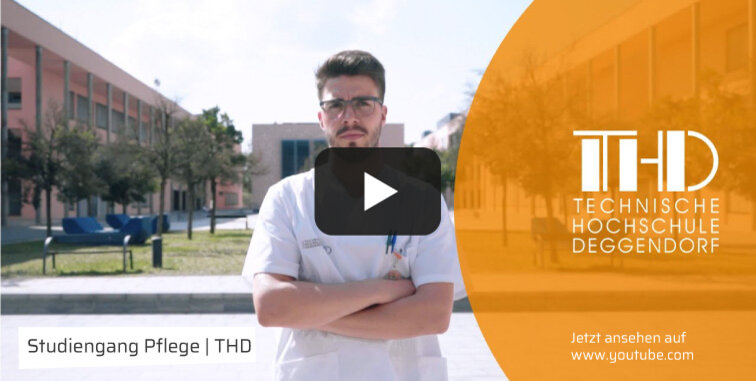We provide support for internships, starting a job in a company, or setting up your own business

academic nursing qualification
#healthcare #healthcare skills #diagnostics #healthcare growth #health literacy #physiology #nutrition #metabolism #activity #healthcare developments #biology #AI #digitalisierung #communication #psychology #research
At the beginning of 2020, a German law came into force enabling universities to teach nursing through academic study. Currently, we are one of the few universities of applied sciences in Bavaria where you can study to qualify as a nurse. Throughout this bachelor course, you will learn how to skillfully nurse people in need of care. Compared to classic vocational training, the course teaches a lot of scientific content which will support you in managerial positions and help you to take responsibility on throughout your professional career. Many practical phases during your studies will enable you to develop your personal skills so you can assess care situations from your own perspective. Upon completion of your studies, you also qualify for state admission as a nursing specialist.
fact sheet for nursing
Degree:
- Nurse
- Bachelor of Science (B.Sc.)
Duration: 8 semesters (4 years)
ECTS points: 240
Start: October (winter semester)
Location: Deggendorf
Taught in: German (see language requirements)
Application period: 15 April - 15 September
Admission requirements:
- General German university entrance qualification, or please check your eligibilty at the DAAD if you own an international qualification
- As well as a training contract with a co-operating institution
- Extended certificate of good conduct (a form is required to apply for the extended certificate of good conduct, which will be provided by the study centre via the applicant portal approx. 2 weeks after the application has been sent).
Fees:
- No tuition fees, only student union fee
- International students from non-EU/EEA countries are required to pay service fees for each semester. Click here to read about our service fees.
Contact: General enquiries about studying at DIT: welcome@th-deg.de | prospective student advisors
career prospects
As a nurse, you will work in a very sought-after profession. There is a massive shortage of nursing staff in Germany and you could work, for example, in hospitals, nursing homes and old people's homes, outpatient care services and all other health and social services. Nursing is an extremely valuable profession as direct patient care means that the patients you care for, who come from all age groups and life styles, are always in the forefront of your work. Your task is to select suitable preventive, curative and palliative measures for them and to look after them in everyday life. You are an important link between patients, relatives and doctors. You will gain the necessary practical experience for this in the practical phases of your studies, which make up almost half of your lessons and are organized by DIT.
cooperation partners
During their studies, our students complete a total of eight practical phases. These are completed at the respective cooperation partners. Our students are supported in the planning and organisation by the AGW's Cooperation and Practice department. If your favourite institutions are not listed, this should of course not be a problem. Just get in touch with us and we will try to win over the institution for us.
Do you have any questions about one of our cooperation partners or the practical phases? Then you are welcome to contact us at any time.
Contact
subject overview
Overview of lectures and courses, SWS (Semesterwochenstunden = weekly hours/semester) and ECTS (European Credit Transfer and Accumulation System) in the Bachelor's degree Nursing.
|
1. Semester |
SWS | ECTS |
| Forschungsdifferenzierter Pflegeprozess & Evidenzbasierte Pflege 1 | 3 | 5 |
| Fachwissenschaftlicher Wahlbereich 1: Bezugswissenschaftliche Grundlagen 1 | 4 | 5 |
| Therapiewissenschaft 1: Bewegung / Ruhe | 8 | 10 |
| Health Promotion 1 | 3 | 5 |
| Praxis 1 | 3 | 5 |
|
2. Semester |
SWS | ECTS |
| Forschungsdifferenzierter Pflegeprozess & Evidenzbasierte Pflege 2 | 3 | 5 |
| Fachwissenschaftlicher Wahlbereich 2: Bezugswissenschaftliche Grundlagen 2 | 5 | 5 |
| bestehend aus den Untermodulen: | ||
|
||
|
||
| Therapiewissenschaft 2: Ernährung | 6 | 5 |
| Health Promotion 2 | 4 | 5 |
| Praxis 2 | 3 | 10 |
|
3. Semester |
SWS | ECTS |
| Berufsidentität und Politik | 3 | 5 |
| Fachwissenschaftlicher Wahlbereich 3: Bezugswissenschaftliche Grundlagen 3 | 5 | 5 |
| bestehend aus den Untermodulen: | ||
|
||
|
||
| Therapiewissenschaft 3: Wahrnehmung/Denken, Ausscheidung/ Sexualität, Infektion | 8 | 10 |
| Fachpädagogische Grundlagen & Grundlage der Edukation | 4 | 5 |
| Praxis 3 | 3 | 5 |
|
4. Semester |
SWS | ECTS |
| Ethik | 4 | 5 |
| Fachwissenschaftlicher Wahlbereich 4: Bezugswissenschaftliche Grundlagen 4 | 4 | 5 |
| bestehend aus den Untermodulen: | ||
|
||
|
||
| Therapiewissenschaft 4: Selbst, Stresstoleranz, Gewalt, Wunde | 2 | 5 |
| Edukationskonzepte und -methoden 1 | 4 | 5 |
| Praxis 4 | 3 | 10 |
|
5. Semester |
SWS | ECTS |
| Gesundheitssystem und Recht | 4 | 5 |
| Fachwissenschaftlicher Wahlbereich 5: Bezugswissenschaftliche Grundlagen 5 | 4 | 5 |
| bestehend aus den Untermodulen: | ||
|
||
|
||
| Therapiewissenschaft 5: Familie, Rolle, Wohlbefinden, Schmerz | 6 | 5 |
| Edukationskonzepte und -methoden 2 | 4 | 5 |
| Praxis 5 | 3 | 10 |
|
6. Semester |
SWS | ECTS |
| Health Care Management | 4 | 5 |
| Komplexe Pflege 1 | 8 | 10 |
| Angewandte Gesundheitskommunikation | 5 | 5 |
| Praxis 6 | 3 | 10 |
|
7. Semester |
SWS | ECTS |
| Neue Techn. & E Health & Versorgungsforschung | 4 | 5 |
| Komplexe Pflege 2 | 8 | 10 |
| Angewandte Health Literacy | 4 | 5 |
| Praxis 7 | 4 | 10 |
|
8. Semester |
SWS | ECTS |
| Bachelorarbeit & Kolloquium | 4 | 10 |
| Praxis 8 | 3 | 20 |
studying nursing as a registered nurse
If you decide to study nursing as a registered nurse, you will benefit from a shortened standard period of study and a curriculum tailored to your already acquired expertise. You can choose between the specialisations "practical guidance" and "ward management". Below you will find an overview of all the information you need to know as a registered nurse.
fact-sheet
Degree:
- Bachelor of Science (B.Sc.)
Duration:
- 8 semesters
- 2 - 3 block days per week
Start: October (winter semester)
Location: Deggendorf
Course language: German (see language requirements)
Application period: 15 April - 15 September
Admission requirements:
- General German university entrance qualification, or please check your eligibilty at the DAAD if you own an international qualification + finished training (Ausbildung)
- Completed training in the field of nursing
- Or completed relevant vocational training + 3 years of professional experience
Fees:
- No tuition fees, only student union fee
- International students from non-EU/EEA countries are required to pay service fees for each semester. Click here to read about our service fees.
Contact: General enquiries about studying at DIT: welcome@th-deg.de | www.th-deg.de/en/advice
subject overview
Overview of lectures and courses, SWS (Semesterwochenstunden = weekly hours/semester) and ECTS (European Credit Transfer and Accumulation System) in the Bachelor's degree Nursing for registered nursing staff.
|
1. Semester |
SWS | ECTS |
| Forschungsdifferenzierter Pflegeprozess & Evidenzbasierte Pflege 1 (gemeinsam mit Pflege primär) | 3 | 5 |
| Fachwissenschaftlicher Wahlbereich 1: Führungsverständnis und -kompetenz entwickeln | 3 | 5 |
| Therapiewissenschaft 1: Bewegung / Ruhe (gemeinsam mit Pflege primär) | 8 | 10 |
| Health Promotion 1 (gemeinsam mit Pflege primär) | 3 | 5 |
| Praxis 1* | 3 | 5 |
|
2. Semester |
SWS | ECTS |
| Forschungsdifferenzierter Pflegeprozess & Evidenzbasierte Pflege 2 (gemeinsam mit Pflege primär) | 3 | 5 |
| Fachwissenschaftlicher Wahlbereich 2: Personenzentrierung und Praxisentwicklung fördern | 4 | 5 |
| Therapiewissenschaft 2: Ernährung (gemeinsam mit Pflege primär) | 6 | 5 |
| Health Promotion 2 (gemeinsam mit Pflege primär) | 4 | 5 |
| Praxis 2* | 3 | 10 |
|
3. Semester |
SWS | ECTS |
| Berufsidentität und Politik (gemeinsam mit Pflege primär) | 3 | 5 |
| Fachwissenschaftlicher Wahlbereich 3: Pflegemanagementprozesse gestalten | 4 | 5 |
| Therapiewissenschaft 3: Wahrnehmung/Denken, Ausscheidung/ Sexualität, Infektion (gemeinsam mit Pflege primär) | 8 | 10 |
| Fachpädagogische Grundlagen & Grundlage der Edukation (gemeinsam mit Pflege primär) | 4 | 5 |
| Praxis 3* | 3 | 5 |
|
4. Semester |
SWS | ECTS |
| Ethik (gemeinsam mit Pflege primär) | 4 | 5 |
| Fachwissenschaftlicher Wahlbereich 4: Projekte Planen, steuern und evaluieren | 4 | 5 |
| Therapiewissenschaft 4: Selbst, Stresstoleranz, Gewalt, Wunde (gemeinsam mit Pflege primär) | 2 | 5 |
| Edukationskonzepte und -methoden 1 (gemeinsam mit Pflege primär) | 4 | 5 |
| Praxis 4* | 3 | 10 |
|
5. Semester |
SWS | ECTS |
| Gesundheitssystem und Recht (gemeinsam mit Pflege primär) | 4 | 5 |
| Fachwissenschaftlicher Wahlbereich 5: Strategisch handeln und moderne Arbeitswelten gestalten | 4 | 5 |
| Therapiewissenschaft 5: Familie, Rolle, Wohlbefinden, Schmerz (gemeinsam mit Pflege primär) | 6 | 5 |
| Edukationskonzepte und -methoden 2 (gemeinsam mit Pflege primär) | 4 | 5 |
| Praxis 5* | 3 | 10 |
|
6. Semester |
SWS | ECTS |
| Health Care Management (gemeinsam mit Pflege primär) | 4 | 5 |
| Komplexe Pflege 1 (gemeinsam mit Pflege primär) | 8 | 10 |
| Angewandte Gesundheitskommunikation (gemeinsam mit Pflege primär) | 5 | 5 |
| Praxis 6* | 3 | 10 |
| 7. Semester | SWS | ECTS |
| Neue Techn. & E Health & Versorgungsforschung (gemeinsam mit Pflege primär) | 4 | 5 |
| Komplexe Pflege 2 (gemeinsam mit Pflege primär) | 8 | 10 |
| Angewandte Health Literacy (gemeinsam mit Pflege primär) | 4 | 5 |
| Praxis 7* | 4 | 10 |
| 8. Semester | SWS | ECTS |
| Bachelorarbeit & Kolloquium (gemeinsam mit Pflege primär) | 4 | 10 |
| Praxis 8* | 3 | 20 |
* These modules are recognised by the examination boards of the training institutions and do not have to be attended/taken at DIT. The application for recognition of examination results (marked with an asterisk*) must be submitted to the programme assistant in the first semester.
A standard period of study of 8 semesters is envisaged. Recognition is granted on a case-by-case basis depending on individual prior knowledge and after consultation with the module coordinators.




